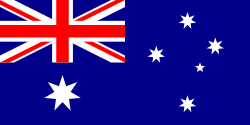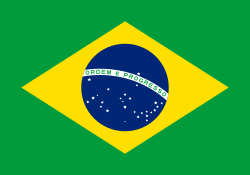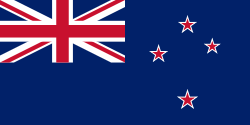De Havilland DH.83 Fox Moth
| De Havilland DH.83 Fox Moth | |
|---|---|
 | |
| Typ: | Verkehrsflugzeug, Transportflugzeug |
| Entwurfsland: | |
| Hersteller: | |
| Erstflug: | 29. Januar 1932 |
| Stückzahl: | 154 |
Die De Havilland DH.83 Fox Moth (deutsch Brombeerspinner) wurde als leichtes Transportflugzeug mit guten Flugleistungen und geringen Betriebskosten aus der De Havilland Tiger Moth entwickelt.
Der Konstrukteur A.E. Hagg entwickelte 1932 die Fox Moth, indem er das Flugwerk der Tiger Moth mit einem neuen erweiterten Rumpf kombinierte. Die Tragflächen, das Leitwerk, Fahrwerk und die Motoraufhängungen der Tiger Moth blieben unverändert, aber der Sperrholz-Rumpf bekam zwischen Motor und Cockpit eine geschlossene Kabine für vier Personen. Der Erstflug fand 1932 in Stag Lane statt. Im Prototyp war ein de Havilland Gipsy III mit 120 PS eingebaut. Es wurden auch Erprobungen mit Schwimmern und Skiern, in Zusammenarbeit mit Canadian Airways, in Kanada durchgeführt.
Viele Maschinen wurden nach Kanada und Australien geliefert, manche davon auch mit geschlossener Pilotenkanzel.
Nach dem Zweiten Weltkrieg produzierte de Havilland Canada noch über 50 Exemplare als DH.83C (Canada). Dabei bekamen die Maschinen Höhenruder und Trimmklappen. Das Cockpit wurde serienmäßig mit Plexiglasdach ausgeliefert. Als Triebwerk kam der Gipsy Major 1C mit einer Maximalleistung von 145 PS zum Einsatz.
Militärische Nutzer
- Königlich Jugoslawische Luftwaffe
Technische Daten
| Kenngröße | Daten |
|---|---|
| Besatzung | 1 |
| Passagiere | 3–4 |
| Länge | 7,85 m |
| Spannweite | 9,41 m |
| Höhe | 2,68 m |
| Flügelfläche | 24,25 m² |
| Leermasse | 499 kg |
| Startmasse | 939 kg |
| Reisegeschwindigkeit | 154 km/h |
| Höchstgeschwindigkeit | 182 km/h |
| Dienstgipfelhöhe | 3870 m |
| Reichweite | 579 km |
| Triebwerke | ein Vierzylinder-Reihenmotor de Havilland Gipsy Major mit 130 PS (96 kW) |
Literatur
- A. Lumsden, T. Heffernan: Probe Probare, Part 27, D.H.83 Fox Moth. In: Aeroplane Monthly. August 1986, S. 444–446
Weblinks
Auf dieser Seite verwendete Medien
Flagge des Vereinigten Königreichs in der Proportion 3:5, ausschließlich an Land verwendet. Auf See beträgt das richtige Verhältnis 1:2.
Pan-Slavic flag. Emerged from 1848 Prague pan-Slavic conference, or interpretations of the resolutions of the conference. Drawn by Fibonacci.
Pan-Slavic flag. Emerged from 1848 Prague pan-Slavic conference, or interpretations of the resolutions of the conference. Drawn by Fibonacci.
The Canadian Red Ensign used between 1921 and 1957.
This image has compared for accuracy (mainly colors) using an image from World Statesmen. The only change is making the maple leaves green from red. This image has compared for accuracy (mainly colors) using an image from World Statesmen. The most recent version of this image has changed the harp into one with a female figure; see [http://flagspot.net/flags/ca-1921.html FOTW
The Canadian Red Ensign used between 1921 and 1957.
This image has compared for accuracy (mainly colors) using an image from World Statesmen. The only change is making the maple leaves green from red. This image has compared for accuracy (mainly colors) using an image from World Statesmen. The most recent version of this image has changed the harp into one with a female figure; see [http://flagspot.net/flags/ca-1921.html FOTW
De Havilland DH.83 3-view drawing from NACA-AC-162
Flag of South Africa, used between 1928 and 1982. It is identical to the 1982 to 1994 version except that the shade of blue is darker. It is also known as the "Oranje-Blanje-Blou".
de Havilland DH.83 Fox Moth at the Great Vintage Fly-in Weekend, Kemble, England, May 2003.










